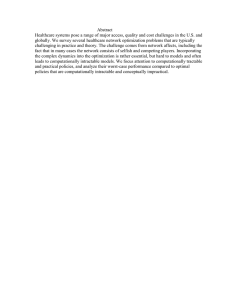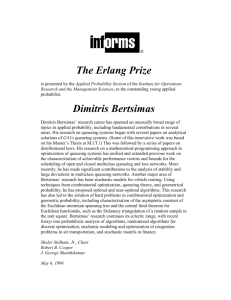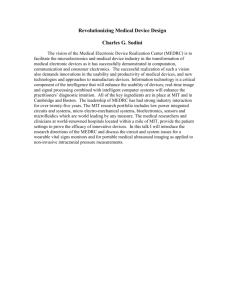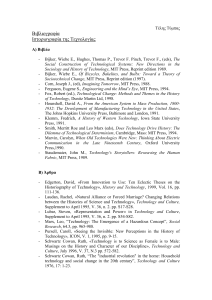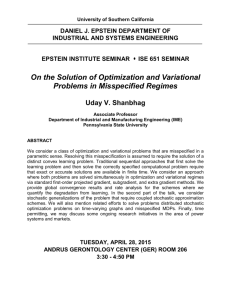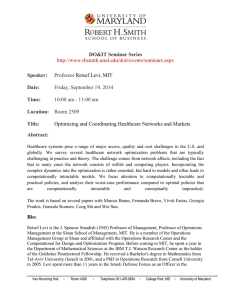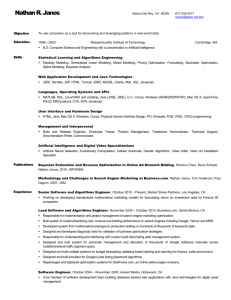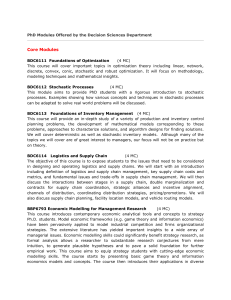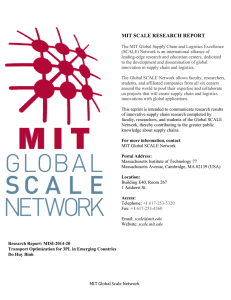A computationally tractable theory of performance analysis in
advertisement
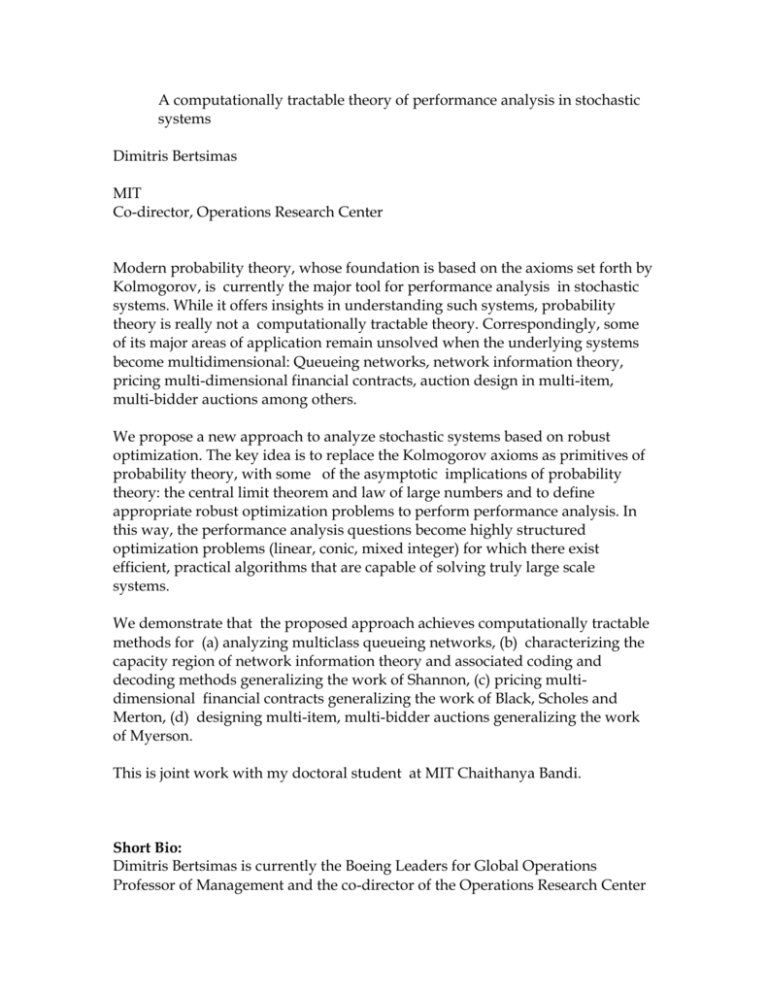
A computationally tractable theory of performance analysis in stochastic systems Dimitris Bertsimas MIT Co-director, Operations Research Center Modern probability theory, whose foundation is based on the axioms set forth by Kolmogorov, is currently the major tool for performance analysis in stochastic systems. While it offers insights in understanding such systems, probability theory is really not a computationally tractable theory. Correspondingly, some of its major areas of application remain unsolved when the underlying systems become multidimensional: Queueing networks, network information theory, pricing multi-dimensional financial contracts, auction design in multi-item, multi-bidder auctions among others. We propose a new approach to analyze stochastic systems based on robust optimization. The key idea is to replace the Kolmogorov axioms as primitives of probability theory, with some of the asymptotic implications of probability theory: the central limit theorem and law of large numbers and to define appropriate robust optimization problems to perform performance analysis. In this way, the performance analysis questions become highly structured optimization problems (linear, conic, mixed integer) for which there exist efficient, practical algorithms that are capable of solving truly large scale systems. We demonstrate that the proposed approach achieves computationally tractable methods for (a) analyzing multiclass queueing networks, (b) characterizing the capacity region of network information theory and associated coding and decoding methods generalizing the work of Shannon, (c) pricing multidimensional financial contracts generalizing the work of Black, Scholes and Merton, (d) designing multi-item, multi-bidder auctions generalizing the work of Myerson. This is joint work with my doctoral student at MIT Chaithanya Bandi. Short Bio: Dimitris Bertsimas is currently the Boeing Leaders for Global Operations Professor of Management and the co-director of the Operations Research Center at the Massachusetts Institute of Technology. He has received a BS in Electrical Engineering and Computer Science at the National Technical University of Athens, Greece in 1985, a MS in Operations Research at MIT in 1987, and a Ph.D. in Applied Mathematics and Operations Research at MIT in 1988. Since 1988, he has been in the MIT faculty. His research interests include optimization, stochastic systems, data mining, and their application. In recent years he has worked in robust optimization, health care and finance. He is a member of the National Academy of Engineering and he has received several research awards including the Farkas prize, the SIAM Optimization prize and the Erlang Prize. He has supervised 46 doctoral students at MIT and he is currently supervising 12 others.
